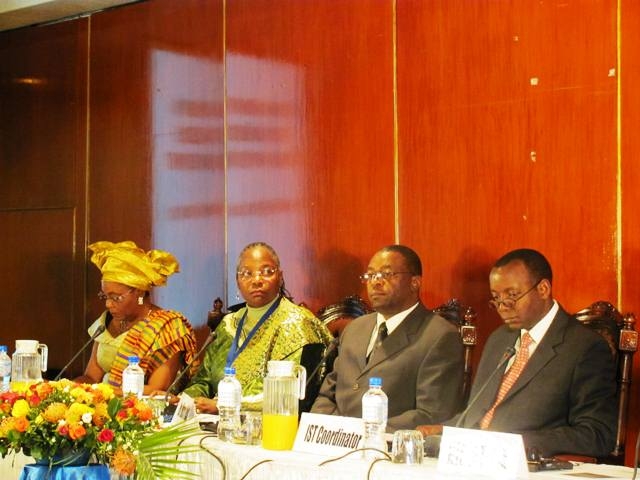Regional workshop on traditional medicine research and development urges more South-South partnership
 Harare, 24 May 2012 -- Traditional medicine has an undeniable potential that should be developed particularly through improving the safety, efficacy and quality of traditional medicines and through protecting intellectual property and African biodiversity as well as promoting South-South partnership.
Harare, 24 May 2012 -- Traditional medicine has an undeniable potential that should be developed particularly through improving the safety, efficacy and quality of traditional medicines and through protecting intellectual property and African biodiversity as well as promoting South-South partnership.
That was the opinion expressed by traditional medicine experts and practitioners from 22 countries of the WHO African Region, from WHO and from partner agencies, who were brought together in Harare, Zimbabwe from 21 to 23 May 2012 at a Regional workshop on traditional medicine research and development.
The workshop afforded participants an opportunity to share the outcomes of research carried out on traditional medicines used for the treatment of malaria, HIV/AIDS, sickle-cell disease, diabetes and high blood pressure. They also also shared experiences in matters concerning the protection of intellectual property and African biodiversity. In addition, the workshop identified issues likely to help update the Regional Strategy on Promoting the role of Traditional Medicine in Health Systems.
Traditional medicine research and development outcomes have shown systematic progress. However, traditional medicine still faces major difficulties especially: weak collaboration among African researchers; high costs of clinical trials; inadequacy of resources as well as data on the safety, efficacy and quality of medicines.
Activities in the protection of intellectual property and African biodiversity have been stagnant. The underlying reasons are: insufficiency of data, lack of national senior officials in the area of intellectual property protection and access to biological resources and low level of training of traditional medicine practitioners.
The workshop recommended to countries and research institutions to promote collaboration among researchers in the African Region; identify innovative approaches that take account of priority health issues; develop mechanisms to help reduce the duration of traditional medicines research and development in order to improve access to the medicines; mobilize adequate resources and allocate them to traditional medicine research and development as part of the implementation of not only the updated Regional strategy on Promoting the role of traditional medicine in health systems, but also the Plan of action of the second African Traditional Medicine Decade 2011-2020.
It was also recommended that WHO as well as regional and sub-regional institutions set up a group to support countries in implementing the updated Regional Strategy on Promoting the role of Traditional Medicine in Health Systems; to compile and disseminate research and development works undertaken by countries in order to maximize the use of resources and reduce duplication of efforts; to promote collaboration between laboratories and research institutes in countries of the Region; and to support Member States in implementing the recommendations of the workshop.
The workshop ended on a note of encouragement from WHO to the workshop participants. In this respect, the Representative of the Coordinator of the WHO Intercountry Support Team for Southern and East Africa, Dr Prosper Tumusime, noted the quality of the deliberations at the workshop and urged the experts to continue in their traditional medicine research and development activities.
Dr Tumusime also noted the positive contributions of the experts and said "that should help strengthen health systems and meet the challenges of the second African Traditional Medicine Decade 2011-2020".
(*) Participating countries: Burkina Faso, Benin, Cameroon, Chad, Congo, Democratic Republic of Congo, Equatorial Guinea, Ethiopia, Ghana, Kenya, Madagascar, Mali, Mauritius, Mozambique, Niger, Nigeria, Rwanda, South Africa, Tanzania, Zambia and Zimbabwe.
(*) Partner agencies: PROMETRA, WAHO, ARIPO, African Union Commission for Scientific and Technical Research, Nongovernmental Organizations involved in the promotion of traditional medicine.
___________________________________________________________________
For further information:
Media contact: Flavienne Issembè – Cell phone: + 263 779949657 (Harare) / + 47241 39352 (WHO Regional Office for Africa, Brazzaville, Congo);
Wendy Julias – Cell phone: + 263 772431408 (WHO Office, Harare - Zimbabwe)
Technical contact: Dr Ossy Kasilo – Cell phone: + 263 775291418 (Harare) /+ 47241 39268 (WHO Regional Office for Africa, Brazzaville - Congo)


